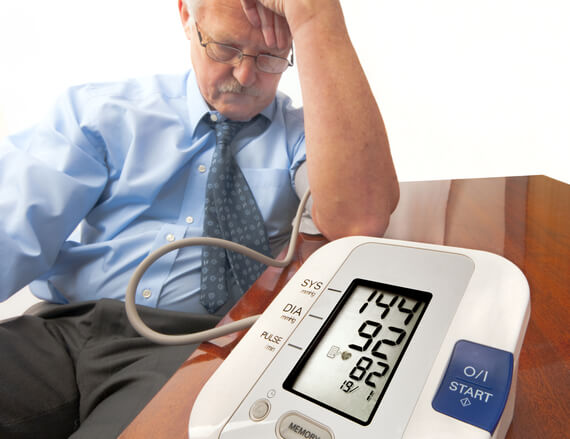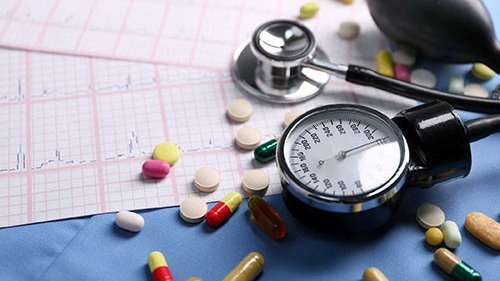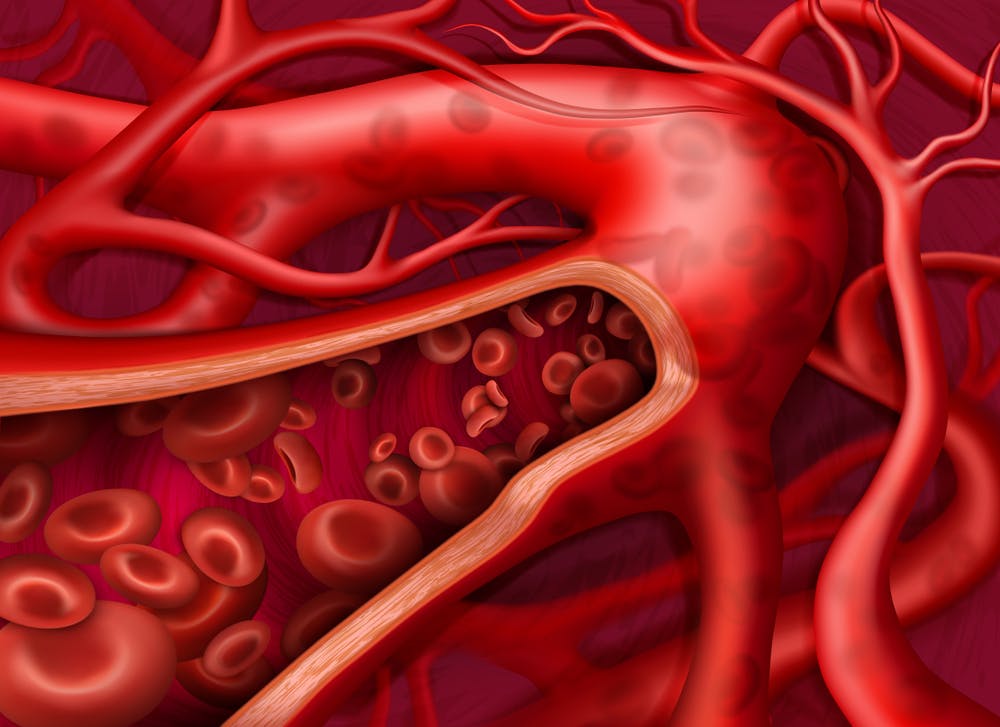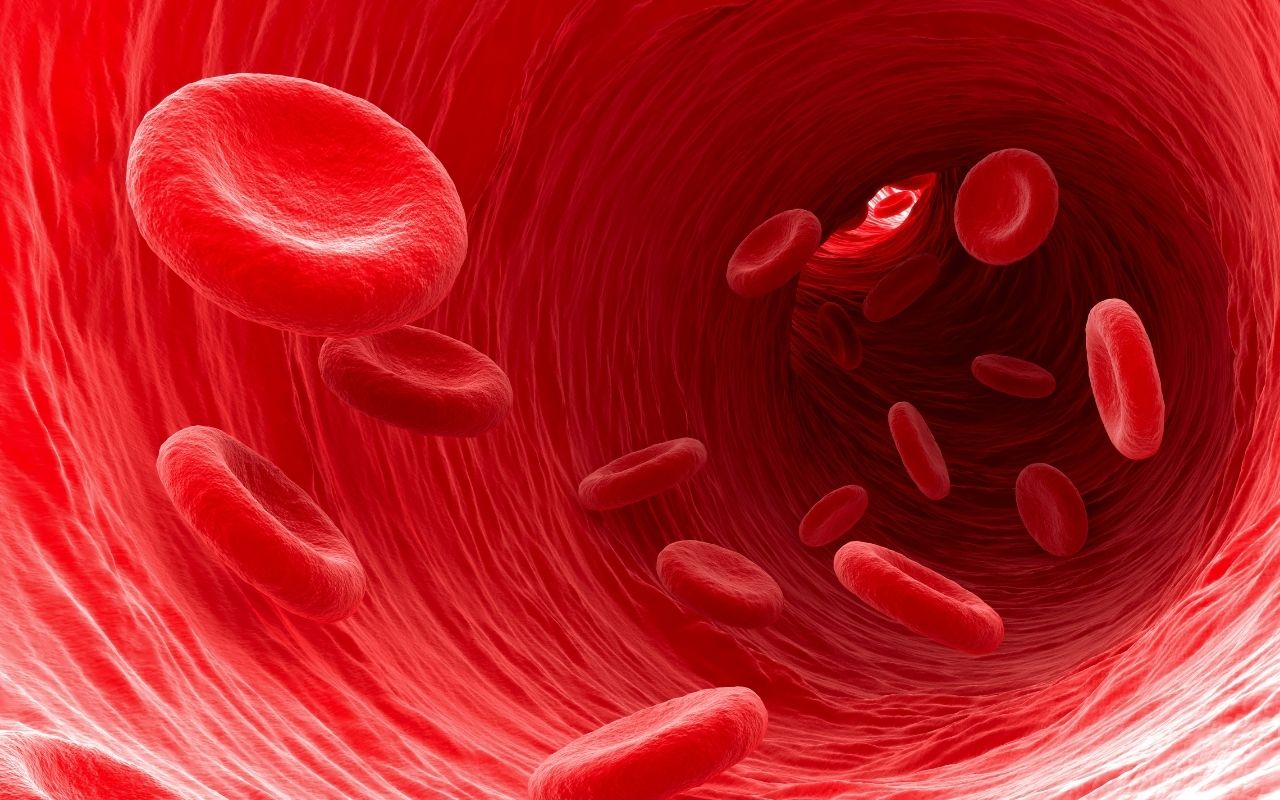According to medical research, people with prolonged high blood pressure are three times more likely to suffer a stroke than those with normal readings, and the risk of heart attack increases two to threefold. What’s more alarming is that most people don’t even know they have high blood pressure until a life-threatening event occurs.
In this article, we’ll explore the mechanisms that make high blood pressure dangerous, how it contributes to cardiovascular damage, and the most effective ways to control high blood pressure to prevent stroke and heart attacks.
What Is High Blood Pressure?
High blood pressure (hypertension) occurs when the force of blood against the artery walls is consistently too high, causing the heart to work harder to pump blood throughout the body.
According to the World Health Organization (WHO), blood pressure is categorized as follows:
- Normal: below 120/80 mmHg
- Prehypertension: 120–139/80–89 mmHg
- Hypertension: 140/90 mmHg or higher
Over time, high blood pressure damages blood vessels—especially those supplying the brain, heart, kidneys, and eyes—and is a major risk factor for life-threatening cardiovascular events.
The Link Between High Blood Pressure, Stroke, and Heart Attack
High blood pressure (hypertension) is often referred to as a “silent killer” because its damaging effects may not be noticeable until a major cardiovascular event occurs. However, its relationship with stroke and heart attack has been extensively researched and proven in both clinical and epidemiological studies. Let’s explore how chronic hypertension directly contributes to these life-threatening conditions:
How High Blood Pressure Leads to Stroke
Stroke occurs when the blood supply to part of the brain is interrupted or severely reduced, depriving brain tissue of oxygen and nutrients. High blood pressure is the number one modifiable risk factor for stroke. It contributes to both major types of stroke:
Ischemic Stroke (accounts for ~85% of all strokes)
- Caused by blockage of a cerebral artery, usually due to a blood clot (thrombus) or an embolus traveling from another part of the body
- Chronic high blood pressure damages the inner lining (endothelium) of blood vessels, making them more prone to atherosclerosis and clot formation
- Over time, narrowed arteries in the brain are more likely to become blocked, leading to reduced blood flow and brain cell death
Hemorrhagic Stroke
- Caused by rupture of a weakened blood vessel in the brain, leading to internal bleeding
- Constantly elevated blood pressure puts excess pressure on artery walls, causing them to become thin, weak, or even bulge (aneurysms)
- When such a vessel ruptures, bleeding into the brain occurs, which can result in rapid loss of consciousness, coma, or death
Key point: People with untreated hypertension are 3 to 4 times more likely to suffer a stroke, and strokes caused by high blood pressure tend to be more severe and fatal.
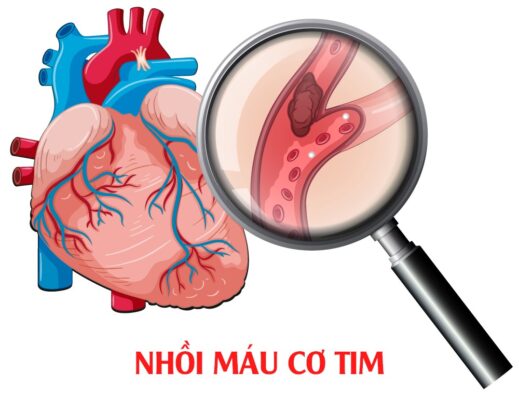
High blood pressure can cause a heart attack
How High Blood Pressure Causes Heart Attack
A heart attack, or myocardial infarction, happens when blood flow to a part of the heart muscle is blocked, usually by a blood clot in a coronary artery.
High blood pressure plays a key role in this process through several mechanisms:
Promoting Atherosclerosis
- Elevated blood pressure injures the artery walls, triggering an inflammatory response
- This damage facilitates the buildup of plaque (fatty deposits of cholesterol, calcium, and cellular debris)
- Over time, arteries narrow and harden, limiting oxygen-rich blood from reaching the heart muscle
Increasing the Risk of Plaque Rupture
- Chronic hypertension destabilizes arterial plaques, making them more prone to rupture
- When a plaque ruptures, the body forms a blood clot at the site
- If the clot blocks a coronary artery, the heart muscle is starved of oxygen, and cells begin to die within minutes
Elevating Oxygen Demand While Reducing Supply
- High blood pressure forces the heart to work harder, increasing its oxygen demand
- At the same time, narrowed arteries restrict blood flow, leading to an imbalance between supply and demand
- This mismatch can trigger angina (chest pain) or, worse, a full-blown heart attack
Key point: Individuals with uncontrolled hypertension are 2 to 3 times more likely to suffer from a heart attack than those with normal blood pressure.
How High Blood Pressure Causes Heart Attack
A heart attack, or myocardial infarction, happens when blood flow to a part of the heart muscle is blocked, usually by a blood clot in a coronary artery.
High blood pressure plays a key role in this process through several mechanisms:
Promoting Atherosclerosis
- Elevated blood pressure injures the artery walls, triggering an inflammatory response
- This damage facilitates the buildup of plaque (fatty deposits of cholesterol, calcium, and cellular debris)
- Over time, arteries narrow and harden, limiting oxygen-rich blood from reaching the heart muscle
Increasing the Risk of Plaque Rupture
- Chronic hypertension destabilizes arterial plaques, making them more prone to rupture
- When a plaque ruptures, the body forms a blood clot at the site
- If the clot blocks a coronary artery, the heart muscle is starved of oxygen, and cells begin to die within minutes
Elevating Oxygen Demand While Reducing Supply
- High blood pressure forces the heart to work harder, increasing its oxygen demand
- At the same time, narrowed arteries restrict blood flow, leading to an imbalance between supply and demand
- This mismatch can trigger angina (chest pain) or, worse, a full-blown heart attack
Key point: Individuals with uncontrolled hypertension are 2 to 3 times more likely to suffer from a heart attack than those with normal blood pressure.
Warning Signs of Chronic High Blood Pressure
Most people with high blood pressure show no symptoms until complications occur. However, some signs may include:
- Headaches, especially at the back of the head
- Dizziness, blurred vision
- Palpitations or rapid heartbeat
- Fatigue, insomnia
- Facial flushing or hot flashes
- Frequent nosebleeds without a clear cause
The only accurate way to detect high blood pressure is to measure it regularly. Regular monitoring is essential for early detection and prevention.
Who Is at Risk of High Blood Pressure?
- Adults over 40, especially men
- People who are overweight or physically inactive
- Those with a family history of hypertension
- People with high-salt diets, frequent alcohol use, or smoking habits
- Individuals under chronic stress or poor sleep
- Patients with underlying conditions such as diabetes, high cholesterol, or hormonal disorders
6 Habits to Control and Prevent High Blood Pressure
Monitor Blood Pressure at Home
- Use a digital or manual blood pressure monitor
- Measure in the morning and evening, and record the readings
- Notify your doctor if your numbers consistently exceed 140/90 mmHg
Reduce Salt Intake
- WHO recommends less than 5 grams of salt per day (about one teaspoon)
- Limit canned foods, pickles, soy sauce, instant noodles, salty snacks
- Use natural flavorings like garlic, onion, lemon, or turmeric instead
Maintain a Healthy Weight
- Excess weight increases pressure on the heart and arteries
- Losing just 5–10% of body weight can significantly lower blood pressure
- Exercise at least 30 minutes per day: walking, swimming, cycling
Eat a Heart-Healthy Diet
- Increase intake of fresh vegetables, fruits, and whole grains
- Limit red meat, animal fat, sugary drinks, and processed foods
- Include foods rich in potassium and magnesium: bananas, sweet potatoes, beans, fish
Avoid Alcohol and Quit Smoking
- Alcohol raises blood pressure and damages arteries
- Smoking hardens blood vessels and increases stroke risk
- Quitting tobacco improves cardiovascular health within 1–2 months
Manage Stress and Sleep Well
- Practice meditation, yoga, or deep breathing exercises
- Aim for 7–8 hours of sleep each night
- Avoid screens before bed; try reading or relaxing music instead

Managing stress and improving sleep every day helps stabilize high blood pressure
When to Start Medication?
- If blood pressure consistently exceeds 140/90 mmHg, despite lifestyle changes
- If you have coexisting conditions like diabetes, heart disease, or kidney damage
- If you are at high risk of cardiovascular complications
Important: Never self-medicate or stop your prescribed medication without consulting your doctor. Medication should always be combined with lifestyle improvements for long-term success.
Chronic high blood pressure is a silent but deadly threat, significantly increasing the risk of stroke and heart attack—two leading causes of death worldwide. Fortunately, it is also preventable and manageable when detected early and addressed with the right habits.
Don’t wait for a complication to start caring about your blood pressure. Protect your heart and brain today by making small but meaningful lifestyle changes—and by checking your blood pressure regularly.

